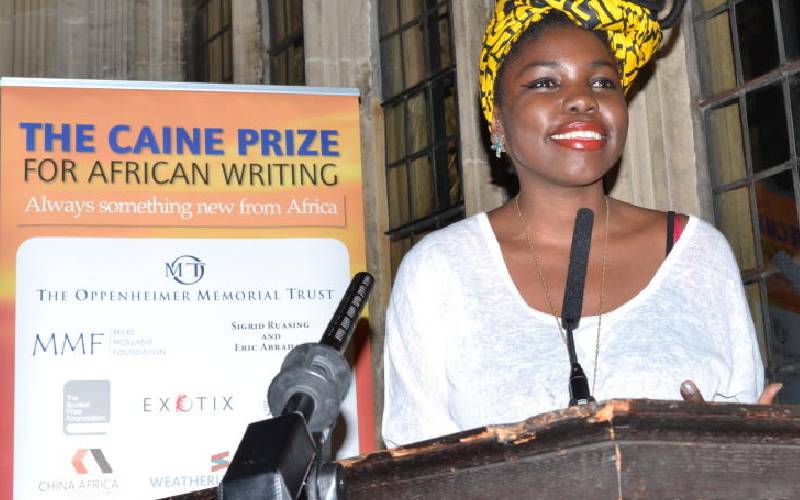×
The Standard e-Paper
Join Thousands Daily

Kenyan author Okwiri Oduor, the 2014 Caine Prize for African Writing winner at the award ceremony in London on Monday night. [Paul Wafula,Standard]
If, as poet Taban Lo Liyong infamously declared a long time ago, that ‘East Africa is a literary desert,’ then literary prizes, especially in Kenya, were the water that enabled local writers ride out this ‘Sahara’ over the last 20 years. This ever since Binyavanga’s now iconic winning of the Caine Prize for African Writing in 2001.